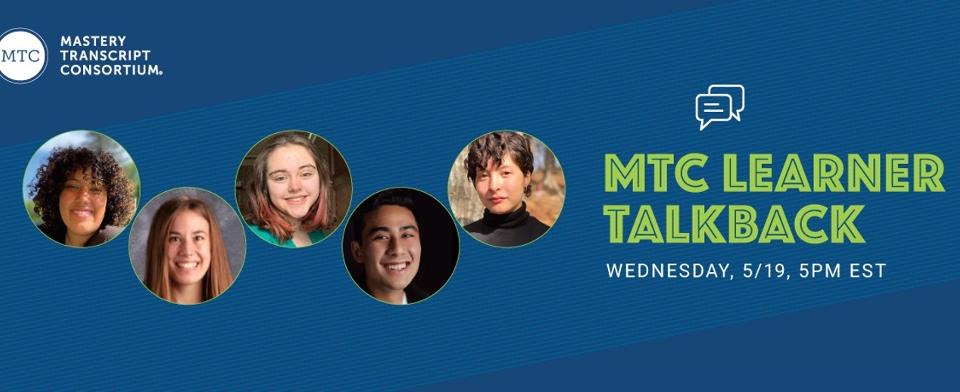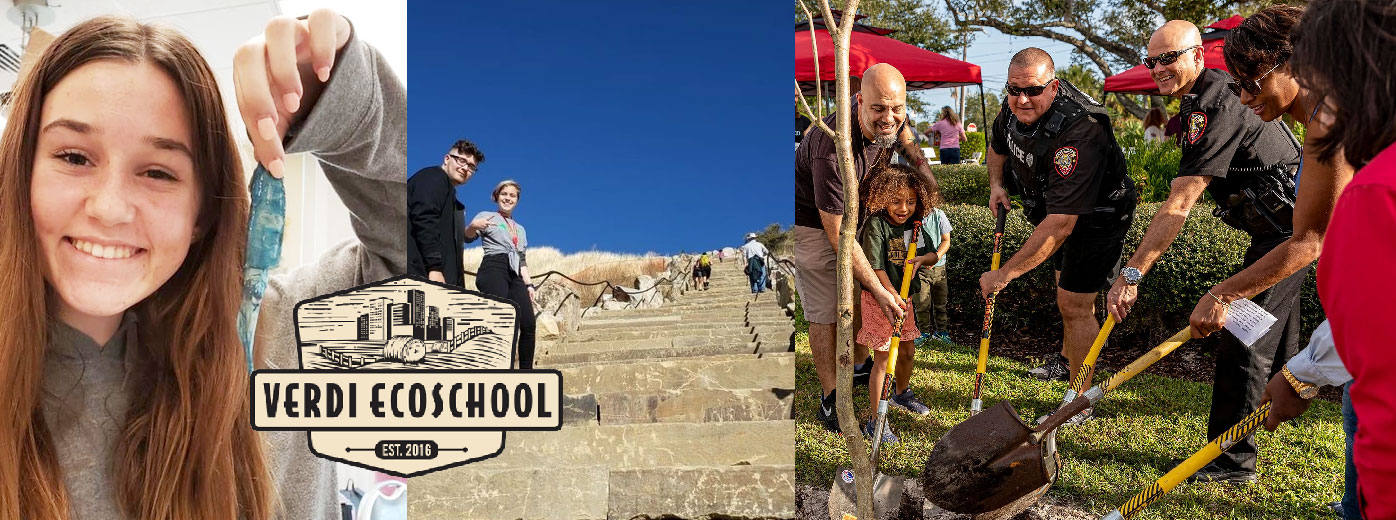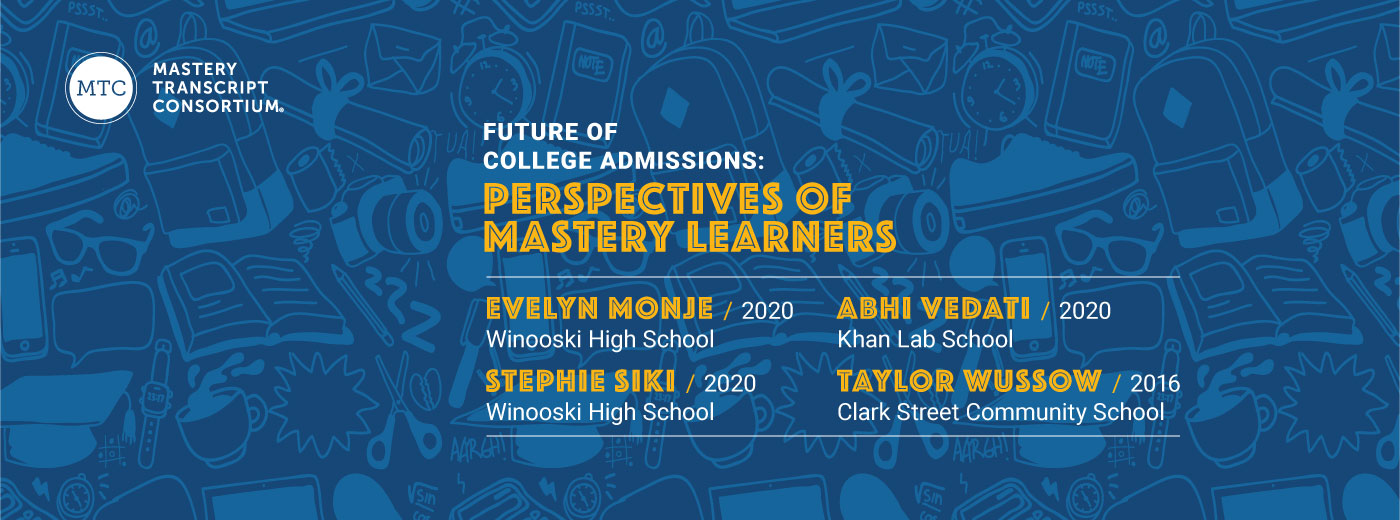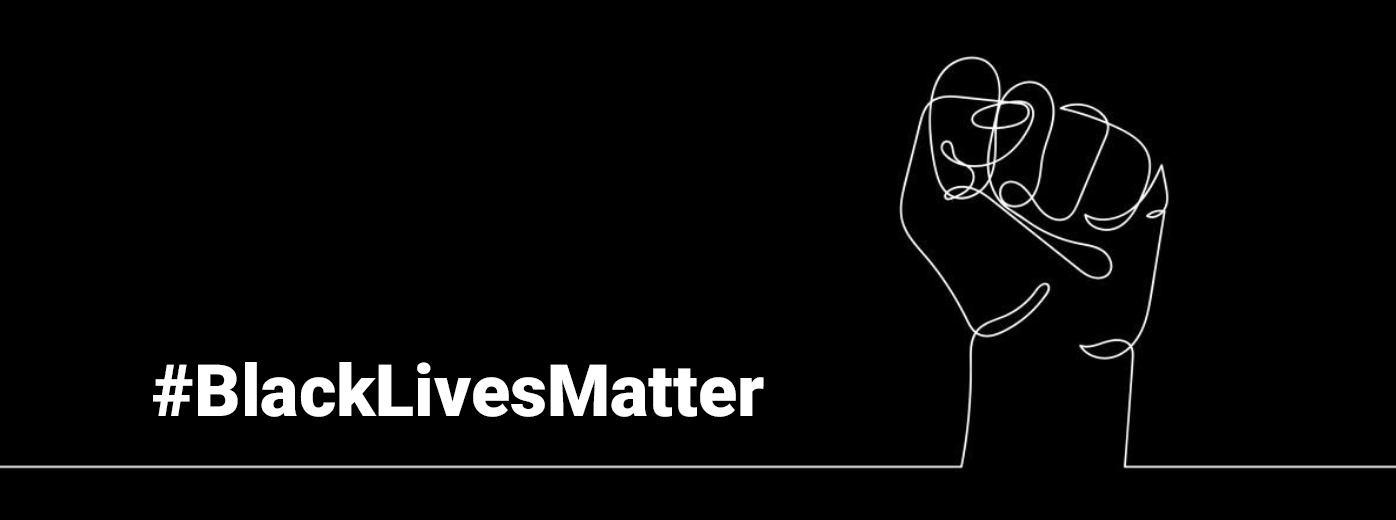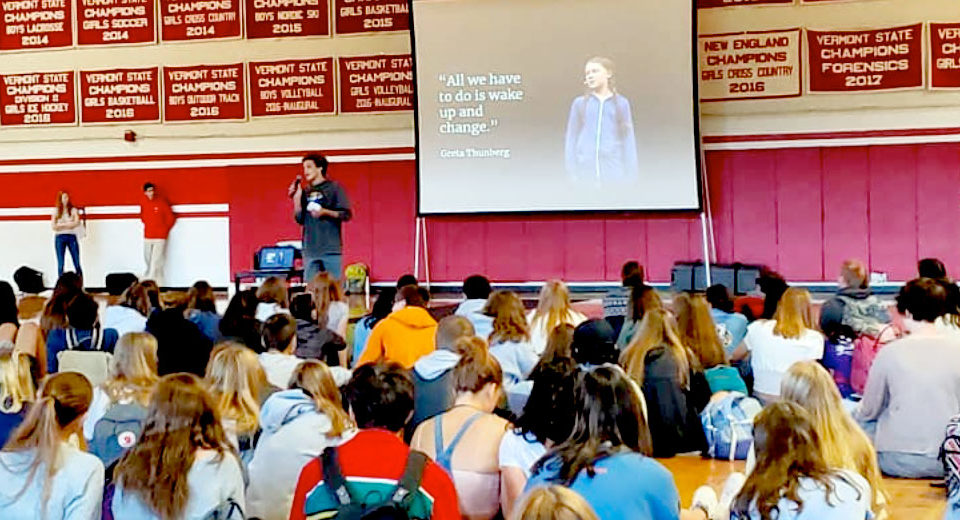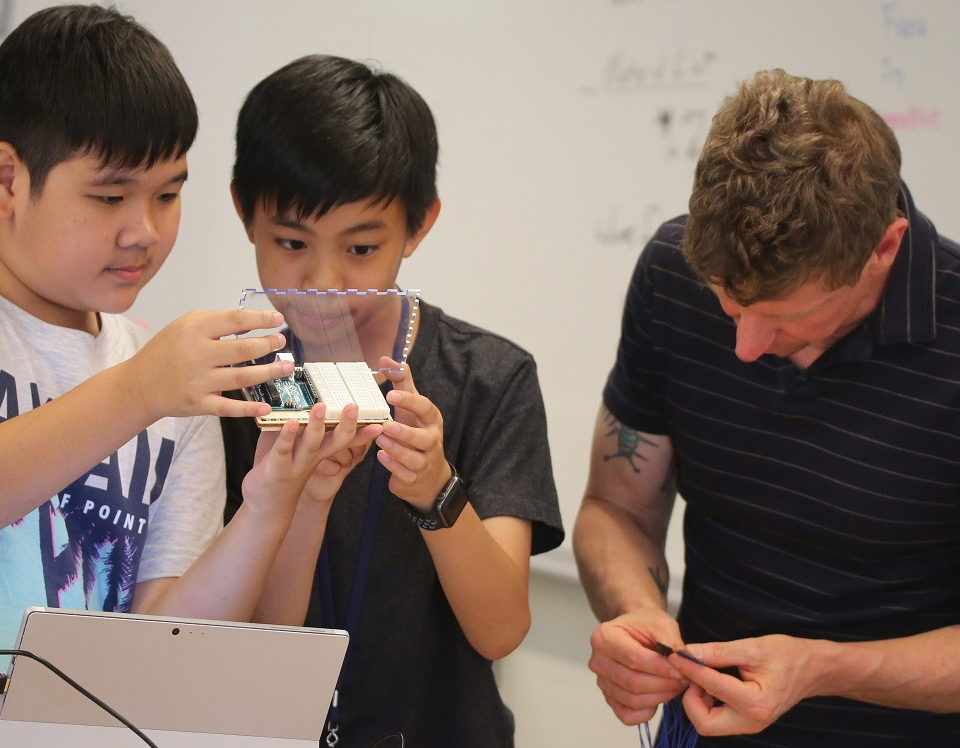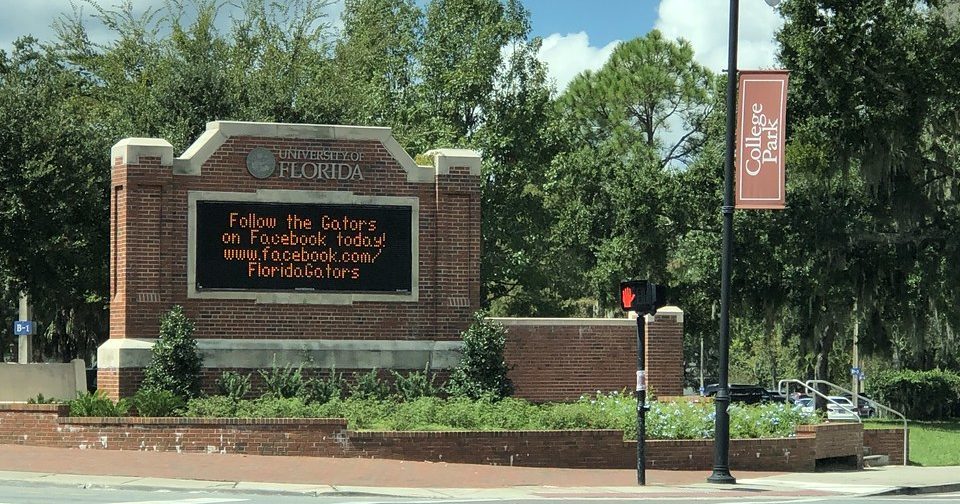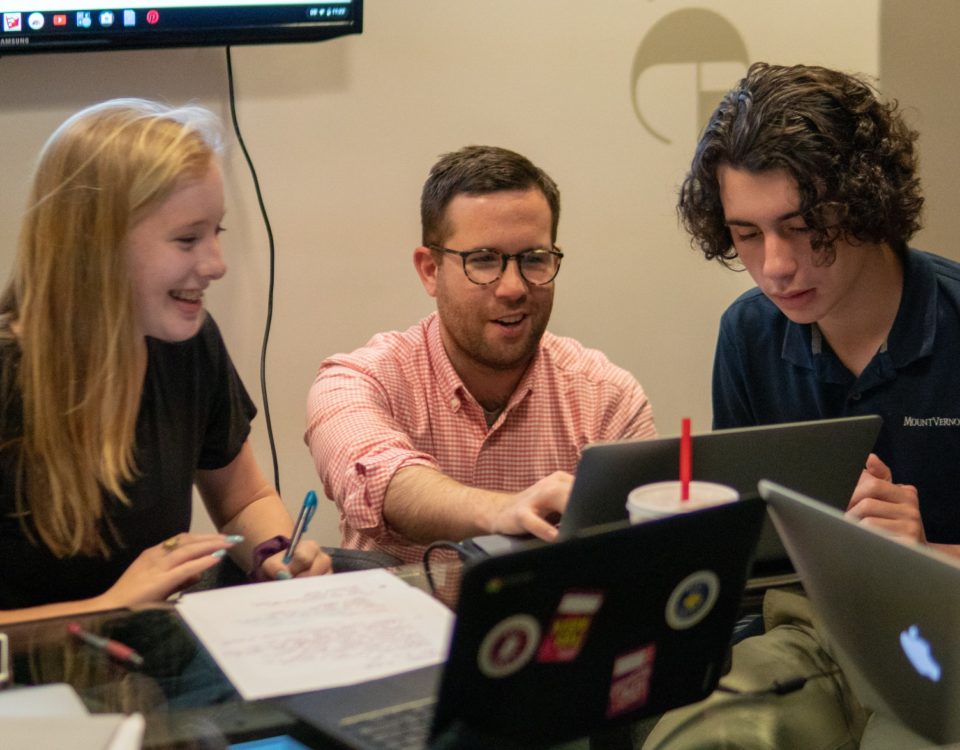Mastery learning
Already a member? Log in to the Member Site at members.mastery.org.
August 9, 2022
Do you remember a learning experience outside of school that made a difference to you? Why did that experience matter? For me, the first thing that comes to mind is actually a person: my brother, Michael Wexler.
June 10, 2021
Here's a peek into the minds of member school learners from our 5/19 talkback who had used the Mastery Transcript to further their educational journeys via internship and college admissions.
April 20, 2021
From mindset-shifting to resilience and everything in between, one on one time with member schools about their respective Journeys to Mastery and the impact of the pandemic has yielded thrilling results.
November 19, 2020
Conversation with Ayana, Co-Founder and Executive Director of Verdi EcoSchool — the first K-8 urban place and project-based urban farm school in the southeastern United States.
November 3, 2020
Conversation with Edgar Montes, Director of Higher-Education Engagement: “College admissions is too often a very complex and overly transactional process. We sometimes don’t talk about the transformational process that needs to happen during the application and admissions process...”
October 6, 2020
The Mastery Transcript is now real and tested—and there are exciting plans ahead for next-generation tools. Join us to learn more during our public webinar on October 9.
October 1, 2020
On September 24, 2020 student panelists at MTC member schools shared their experiences with mastery learning and how it has prepared them for college, career, and life.
June 11, 2020
This article and the deeper paper is a culmination of the five Mastery Learning case studies MTC recently published highlighting the incredible work of five of our member schools as they made the journey to mastery learning.
June 5, 2020
We stand in solidarity with the Black Lives Matter movement, protestors, and all of those speaking out, acting, and creating policies to upend racial inequities and injustice.
May 14, 2020
For thousands of high schoolers throughout the country, the current uncertainty about the role of grades is exacerbating anxiety and accentuating inequitable learning environments. Many students feel undue pressure, including juniors as they prepare for college applications in 2020-2021 and others as they plan ahead to life after high school.
May 12, 2020
MTC offers 10 insights, drawing upon lessons from our member schools and best practices from the field of mastery learning, to help parents endure the task of schooling at home as they can--and to see learning and their own learners/children in the best light.
May 12, 2020
“MTC, more than any other organization that we’ve come across, exists in the sweet spot of our two areas of policy focus,” said Sean Sloane, senior policy analyst at the Council of State Government (CSG).
May 11, 2020
Recently our CEO, Stacy Caldwell, participated in Redesigning School's podcast series--and shared good news about how colleges have responded to the Mastery Transcript and how it meets the moment.
May 7, 2020
In April Greg Curtis participated in MTC's Online Member Symposium, delivering two sessions on assessment and reimagining the learning environment. The following post addresses the role of assessment and curriculum change in moving toward mastery-based school transformation.
February 11, 2020
Recently we sat down with Kedra Ishop, PhD, the vice provost for enrollment management at University of Michigan and a member of MTC’s Higher Ed Advisory Group, to discuss the evolution of education, assessment, and the student transcript in the 21st century. Ishop’s vision for the future is rooted in a deep commitment to progress, particularly for the benefit of young people.
December 27, 2019
We continue our series of case studies with the stories of two more MTC member schools: Champlain Valley Union High School in Vermont and Pathways High School in Wisconsin. Both are public high schools who are engaging their students in learning experiences deeply rooted in research on learning. What is a common road block for school change?
December 27, 2019
MTC’s expertly illustrated series of case studies, prepared by Chris Sturgis, are key resources for member schools. We launch with two member schools, Northern Cass School District 97 in North Dakota and Tilton School in New Hampshire, whose journeys follow similar paths, but…
December 9, 2019
MTC is pleased to introduce the publication, “The Journey towards Mastery Learning: The Steps and Stages to Mastery Credits and the Mastery Transcript,” coauthored by mastery learning experts Chris Sturgis and Katherine Casey, along with MTC’s Senior Director of Member Engagement Susan Bell. This is the second in a series of publications MTC is producing (“MTC Works”) during 2019-2020, following on the earlier theory of action paper, “Getting Our Signals Straight for Students.” The goal of “The Journey towards Mastery Learning” is to provide MTC member schools–and others who are thinking about joining the MTC movement–with a framework for reimagining high school and transitioning to mastery learning … and ultimately the MTC Mastery Transcript. Read on for more.
December 1, 2019
In partnership with Chris Sturgis and her coauthor Katherine Casey, MTC is developing a series of publications for members and schools considering membership. The first volume is our theory of action paper, “Getting Our Signals Straight for Students.”
Read More
July 10, 2019
Recently we sat down with Zina Evans, vice president for enrollment management and associate provost at University of Florida and a member of MTC’s growing Higher Ed Working Group (HEWG), to discuss her thoughts on MTC and the movement to change education.
April 30, 2019
The school-within-a-school model has given an MTC member school “space where we could test different educational strategies and approaches at scale, like the Mastery Transcript and competency-based learning.”
December 19, 2017
The school-within-a-school model has given an MTC member school “space where we could test different educational strategies and approaches at scale, like the Mastery Transcript and competency-based learning.”
December 6, 2017
It’s worth pausing to consider why some find the following statement controversial: assessment should advance learning. Not measure, record, punctuate, summarize, or complete. Advance.



